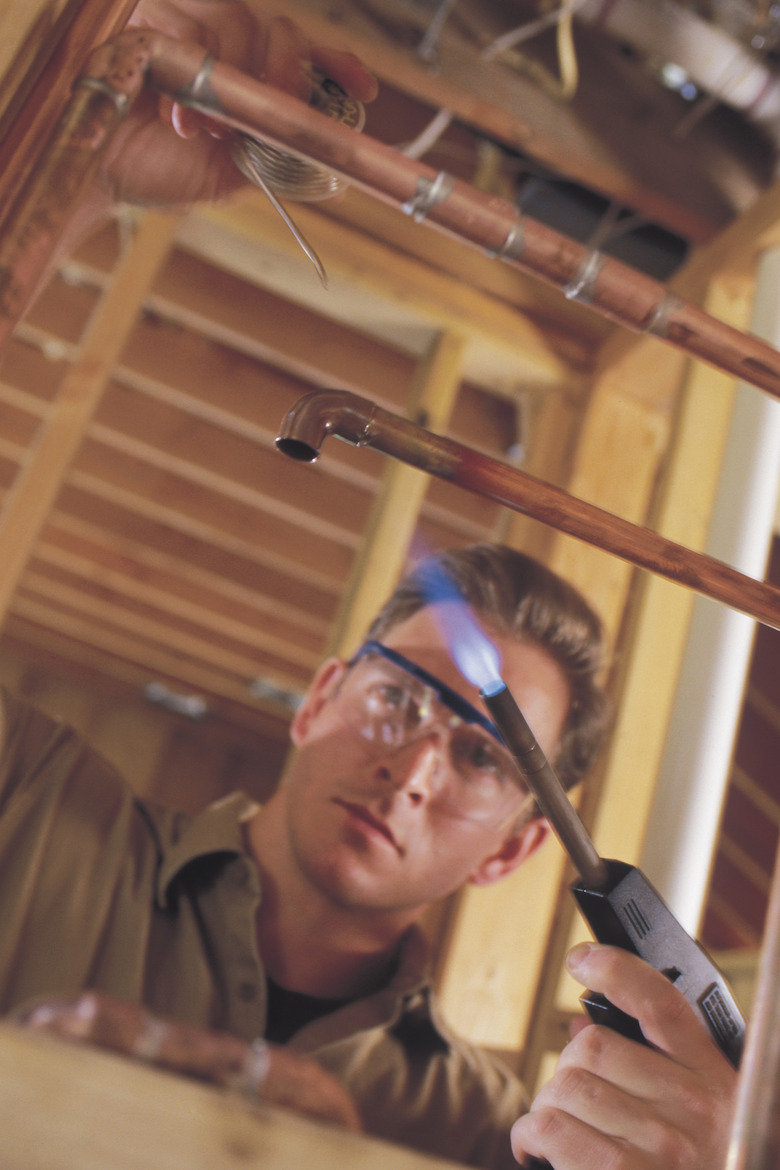How To Choose Solder Diameter Wire
Jewelers, plumbers, electricians and electronics technicians all use soldering to make strong and permanent connections to their work. In most cases they use solder wire, which comes in a variety of diameters from 0.01 inch to .250 inch (.25 mm to 6.00 mm). The diameter you choose depends on your artistic style along with the size and type of materials on your project. Too large solder may not melt before you cause too much heat damage. Or it may cause solder to "bridge" onto other connections, causing short circuits. Too small of a diameter may not apply enough solder on the first try.
Step 1
Choose larger diameter for big jobs. Plumbers solder copper pipes up to one inch or more in diameter. Sometimes they need two torches to heat the joint up enough to make the solder melt. In this case, a larger diameter solder works better. The exact size depends on the application and the plumber's personal choice. Usually about 1/8 inch diameter works for standard household plumbing applications, but there is no given rule for an exact size.
Step 2
Use a medium size solder for most standard electrical or electronics projects. For soldering components to terminal lugs or through the holes in printed circuit boards, most technicians use around 1/10 inch in diameter. There is no specific rule other than to try to use a solder small enough that you don't leave globs of excess solder on the joint.
Step 3
Soldering tiny, intricate jewelry or tiny circuits in things like cell phones requires the use of the smallest diameters. Too large a diameter in these instances makes it almost impossible to avoid unwanted ugly blobs or bridges across electronic connections so small you may not even notice them. There is no given rule for an exact size. Only your practice and experience will teach you.
TL;DR (Too Long; Didn't Read)
Solder diameters come in about the same diameters as electrical wires from 30 gauge, the smallest and almost hairlike, up to 0 or 00 gauge which is about 1/4 inch. Although there is no given rule, try to use a solder about the same diameter or slightly smaller than what you are soldering.
Warning
Be careful if you use a solder with a diameter too small because as you feed the solder onto a large joint, you may find yourself running your fingers right up to the solder joint and burning them.
Cite This Article
MLA
Asmus, Richard. "How To Choose Solder Diameter Wire" sciencing.com, https://www.sciencing.com/choose-solder-diameter-wire-5941543/. 24 April 2017.
APA
Asmus, Richard. (2017, April 24). How To Choose Solder Diameter Wire. sciencing.com. Retrieved from https://www.sciencing.com/choose-solder-diameter-wire-5941543/
Chicago
Asmus, Richard. How To Choose Solder Diameter Wire last modified March 24, 2022. https://www.sciencing.com/choose-solder-diameter-wire-5941543/
